"Upon learning what I do, several attendees went into some pretty serious rants about how electronic health records have destroyed…
Readers Write 10/12/09
Submit your article of up to 500 words in length, subject to editing for clarity and brevity (please note: I run only original articles that have not appeared on any Web site or in any publication and I can’t use anything that looks like a commercial pitch). I’ll use a phony name for you unless you tell me otherwise. Thanks for sharing!
Health 2.0
By DrLyle
I attended the second day of Health 2.0. Although geared towards consumers and the Internet, I thought it was worthwhile for any HIT junkie. Here are a few points of interest.
It was a good review of what the big guys are doing (Google, MS, WebMD).
- Basically all three want to be the "holders" of your health data (e.g. your demographics, med list, lab values …).
- While both Google and MS want to also allow anyone else to create PHRs or apps that can use that data, WebMD wants to be the only one who can use the data they hold.
- Business models — unsure on Google and MS, but I assume it is something about either company marketing or eyeballs. WebMD obviously does advertising, but they also can sell their system as a private label for employers to give their employees (and they said employees can access their data on the regular WebMD site if they leave the company).
- Overall, I think Google and MS will be more successful since they seem to have more openness, but they are not mutually exclusive. You can have information in both, and then have a third party creating a PHR or apps that sucks in data from both of them. My hunch is that WebMD will eventually interoperate with them and focus more on the end user applications than on being data storage experts.
Seeing new/interesting startups in the Internet space.
- Most are consumer focused, mostly enthusiastic souls trying to build a site that provides new information, niche communities, or consolidated approaches to healthcare.
- Some business plans rely on employer financing (e.g. wellness sites), while others seem to be just interested in getting eyeballs for now, with plans for ads or an upsell (e.g. extra functionality) later.
- Particularly interesting ones included AccessDNA (helps a consumer pick out which company to use for gene banking and analysis). TrialReach (a nice improvement on the typical search for research trials). iGuard (give them your medication list, and they will email you if any FDA or similar warnings come out). RelateNow (focused exclusively on the niche of parents and providers taking care of autistic children). ScanAvert (you tell them your meds and dietary issues, and then use your phone to take a picture of a UPC code and it will tell you about interactions, etc. …)
Keas.
The NYT article paints an amazing picture where a patient would bring in data (some manual, some automatically from pharmacies, payors…) and the Keas system would create personalized "Care Plans" that tell the patient how to get healthier. Furthermore, they see a world where any provider or company could create Care Plans within their system and then sell them to patients like iPhone apps (e.g. one of my patient might want to buy the Cleveland Clinic Diabetes Plan, while another might want to buy my group’s Diabetes Plan, and yet another will buy my own DrLyle’s Diabetes Plan).
So I was excited to see Adam Bosworth launch Keas at the Health 2.0 conference. Unfortunately, I was underwhelmed (as were many others whom I spoke with about it). Basically, it looked like a fancier version of the same old stuff that eHealth wannabees have been pushing for years (providing personalized advice based on your data). Specifically, their Care plans seemed very basic — "eat better by doing ABC, and exercise more by doing this XYZ… and we’ll send you three reminders a day!"
In other words, they seem to be naïvely falling into the trap of thinking that patients are just looking for advice and knowledge. What they really need is motivation. They know they need to lose weight, so it is unlikely that a Web site telling them they need to lose weight will make it easier for them. Additionally, the screen is quite cluttered. He seems to be using his MS roots rather than his Google ones.
However, I would not underestimate Adam and his company. The general concept is sound and they must know they have to figure out "patient motivation" eventually, so one to watch.

Lyle Berkowitz, MD is a practicing internal medicine physician, a healthcare IT consultant (www.DrLyle.com), and founder of the Szollosi Healthcare Innovation Program (www.TheSHIPHome.org). He blogs regularly at The Change Doctor (http://drlyle.blogspot.com/).


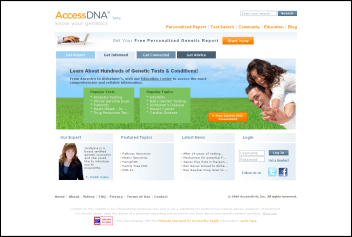
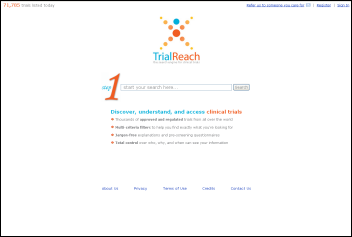
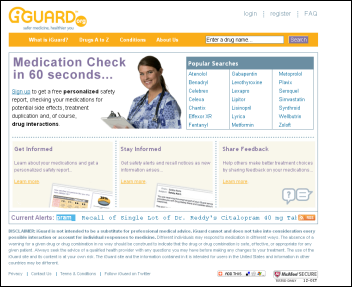
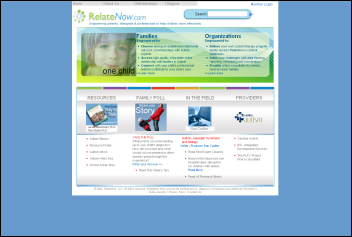
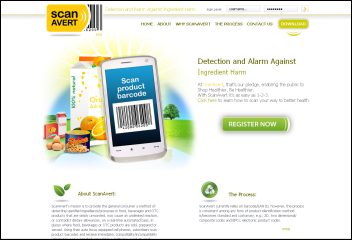
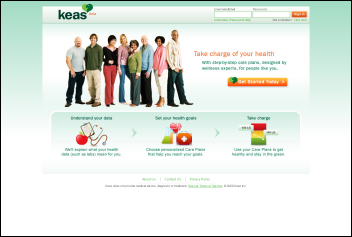
Agreed about Keas. Dr. Lyle, you and I spoke about this. Motivation is personalized for the individual, but one thing that tends to cut across all boundaries is $$$. If you can assign a value to a particular behavior modification, that helps to break the inertia. Then the actual result becomes the incentive. For example, if I pay you $5 a day for 20 years to not smoke, I know I’m going to get a positive ROI, since $36,500< the minimum $50,000+ if you get lung cancer, emphysema, or COPD. After you've quit for awhile, the motivation is living an active healthy life without smoking and all the benefits that go along with it, not the $5.
There are tools out there that allow you to not only calculate your risks based upon real biometric values (not predictive models based upon claims data) and also assign financial values to those risks. That way I can estimate what it is worth to me (for purely ROI calculations, not altruistic or beneficial reasons) to incite your behavior change. Meanwhile, we're still arguing about Death Panels and health care on Twitter.
Thanks for the kind mention in your article. We very much enjoyed being a part of the Health2.0 conference and sharing the stage with such innovative companies!
AccessDNA.com is dedicated to helping people access reliable information about genetic conditions, tests, topics and testing providers (both online and offline).
Thanks Again! Jordanna
P.S. We finally started our blog (http://blog.accessdna.com/)!
Lyle,
Interesting stuff. Seems to me like most of these PHPs are still laying the pipes and pouring foundation. What will really spring most of these companies is when the PHRs become the hub of the home medical ecosystem. (Apologies for the mixing of my metaphors!) Most personal computing to be successful needs to be embedded and integrate seemlessly.
What is important is the information, how it changes, and how it can affect my behavior. Right now PHRs are only at the stage of getting people to collect information – and even that isnt smart. My blood pressure cuff does not complete the cell in my PHR, I do. My polar watch needs to seemlessly sync with my PHR as does my scale, my glucometer, etc. Maybe we need to find a way to increase the entertainment or marginal value; make updating PHR gain frequent flier miles or print coupons for yogurt.
And who wants an electronic nag? We have enough things creating guilt.
Until health data can have value and can be manipulated…PHRs will not gain traction.